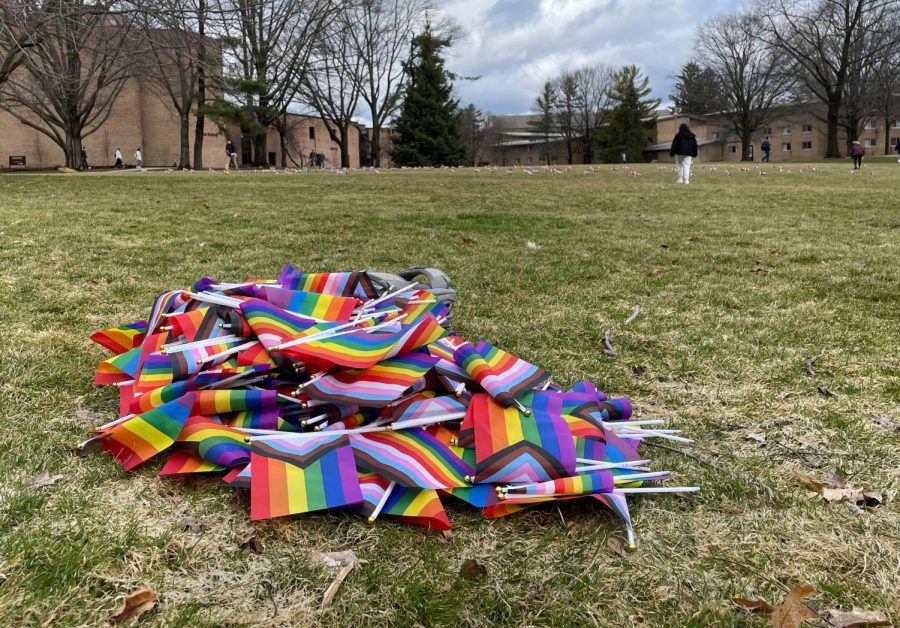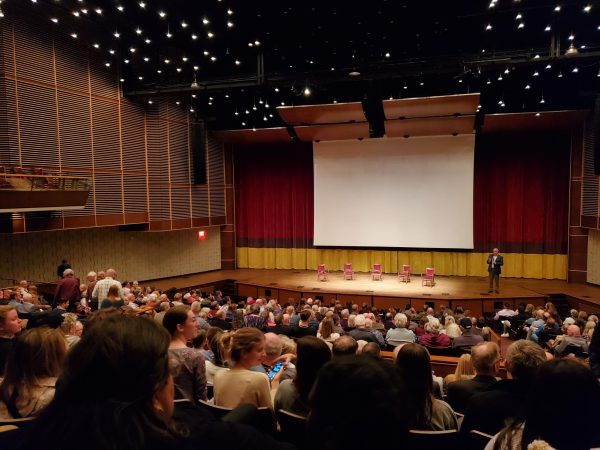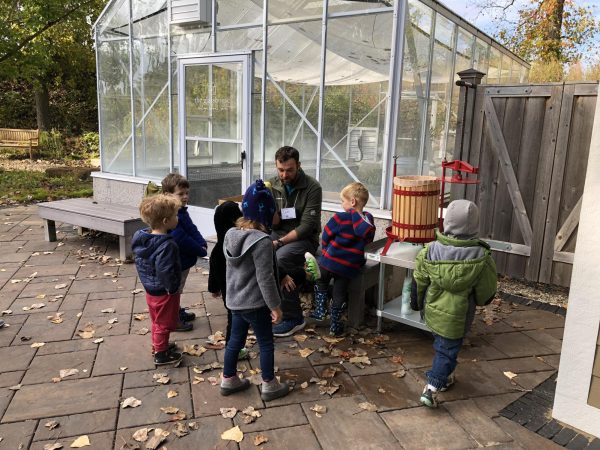Social work students struggled in wake of CSR split. Frustration remains
According to several social work students, Calvin’s treatment of LGBTQ+ students and staff is at the heart of their struggle
The past year has been tumultuous for students in Calvin’s social work program. With the loss of three of four social work professors, on top of the university’s split with the former Center for Social Research (now DataWise Consulting) over the university’s policies for LGBTQ+ staff and general concerns about the treatment of LGBTQ+ students and staff, some social work students have faced a difficult dilemma: whether to stay at Calvin and try to make the best of their situation or to search for a better opportunity elsewhere.
Those who have pursued opportunities elsewhere told Chimes they were fed up with the university’s treatment of LGBTQ+ people. Many of those who remained are also frustrated but said they wanted to stay and advocate for change.
“Never an easy place”
“Calvin was never an easy place for me, because Calvin is not for me,” Isaac Seiler said, who would have been a junior this year. Seiler identifies as gay and felt that Calvin’s target audience was more conservative than he is.
Mica Walter-Rooks, who would have been a senior this year, also faced difficulties at Calvin because of their identity.
“Meeting folks that genuinely believed that I was going to hell for being queer –– that was definitely a big shock to me,” Walter-Rooks said. “It was even weirder finding out that there are professors who will outwardly teach that queer folks are going to hell.”
For both Seiler and Walter-Rooks, the breaking point came last spring, when a social work professor was denied reappointment after officiating a LGBTQ+ wedding and the CSR separated from Calvin in order to retain an LGBTQ+ staff member. Particularly salient for these students was how the CSR staff member was treated by Calvin administration.
The “breaking point”
When administrators learned that a former CSR employee was in an LGBTQ+ marriage, they acted swiftly to meet with him – in a situation that Seiler characterized as “intimidating.”
Provost Noah Toly told Chimes that he, along with an “appropriate and typical” group of two other administrators, met with the staff member on Teams to learn the details of two “policy violations” – one of marriage, the other of religious belief – and explore pathways forward. Toly noted that, in this case, moving toward compliance was not an option. “If you’re in a marriage, we’re not going to ask you to get divorced,” Toly said. “If you’re not a Christian, we’re not going to do a forced conversion.”
In March, Chimes reported that “disagreements over the university’s policies for LGBTQ+ employees” were a motivating factor in CSR’s split from Calvin – but the university’s official announcement of the separation in February did not mention this factor, focusing instead on CSR “evolving for a flourishing future.”
The difference between the announcement’s original tone and the underlying details bothered some students. Seiler said that CSR employees told him privately that the separation was “unexpected” and undesired; then, he heard a university leader publicly state that CSR had wanted the split for “business reasons.” Seiler felt that the Calvin administration had a “motivation to lie.” “They want[ed] to avoid bad PR,” he said.
Both Toly and Neil Carlson, the former director of CSR who now leads DataWise Consulting, told Chimes that discussions about the CSR splitting from Calvin significantly predated the situation last spring – although Carlson noted that those talks were “very theoretical,” from his perspective.
“We loved what [CSR] did, but it was also difficult, at times, to make that work as they grew,” Toly said. “So, we pitched separating by helping CSR with legal connections and costs of incorporation. We wanted to keep them intact as much as possible.”
But although the separation had been previously discussed for financial reasons, the situation with the staff member contributed to its abruptness. “The timing of it and the pacing of it were definitely precipitated by policy violations,” Toly said.
“I think if I knew then what I know now, I might have tried to hang on a bit tighter, because I love this place,” Carlson said. He also told Chimes that there were misunderstandings at play: Carlson believes some administrators –– mistakenly –– thought that CSR wanted to split from the university. “But I wasn’t proposing or asking to leave Calvin,” he said.
According to Toly, it was never the goal to “paint Dr. Carlson or the Center as having prompted [the split],” and he said he never did so. At the same time, he said, parties from Calvin and CSR did agree to publicly focus on the bright side of the situation –– for both of their sakes.
Carlson told Chimes that he drafted the original announcement, which eventually appeared on Calvin’s official website, to “have some control over the message” and preserve the staff member’s welfare –– a goal that administrators shared, according to Toly. “We were also thinking about not spotlighting [him],” Toly said. “We had no reason to believe that [he] wanted that.”
But for Walter-Rooks, as more details of the situation became public, discovering that “the Center for Social Research was cut off because of a queer person working there” was their “breaking point.” “Nothing screamed ‘this institution is homophobic’ like that did, to me,” they said.
In response to these events, students like Walter-Rooks and Seiler engaged in various advocacy efforts. In March, they placed an unauthorized display of LGBTQ+ pride flags on Commons lawn, which was removed by the office for Campus Involvement and Leadership. Walter-Rooks acknowledged that the protest violated university rules, but, they said, “there’s a time and place for rules.” The involvement of a student from the student organization Turning Point USA in removing the flags was also a cause for concern.
For Seiler, the cumulative effect of the spring’s events was a harsh conclusion: “Calvin does not value gay students for who they are, no matter how it’s spun,” he said. “You can know an institution by their actions.”
The events took a toll on students’ mental health. “I had never experienced chronic anxiety before, but I would get panic attacks walking into buildings regularly,” Seiler said.
For Walter-Rooks, Calvin’s actions worsened their depression. “I knew that if I didn’t want to keep having to withdraw from classes, I had to leave,” they said.
It was a difficult decision: Walter-Rooks, whose father works at Calvin, had been attending on a tuition waiver. “Leaving Calvin essentially meant that I am not going to be able to continue going to school without mountains of debt,” they said. “I am sort of in this limbo right now, where I don’t know if I’m ever going to be able to go back to school.”
Seiler exited Calvin when he “lost hope” that anything would ever change. “I left because I put all of my energy, all of my connections on the table,” he said, referencing his extensive advocacy work. “And the institution looked in my eye and said, ‘We’re not changing a damn thing.’”
Seiler does not regret his decision to leave, but it remains a painful subject. “I had to choose my mental wellbeing and my sanity over my community,” he said. “That’s ridiculous.”
Now, Seiler is taking a gap year. Eventually, he plans to return to school –– but not at Calvin.
“I am going to choose an institution that values me and people like me for who we are,” Seiler said.
“I could stay here and advocate”
Seiler and Walter-Rooks are exceptions. Most social work students stayed, although they said staying hasn’t always been easy.
“I did consider leaving Calvin,” third-year student Bekah Hermenitt said. “I was wrestling with if I could attend an institution that didn’t align with my beliefs, especially my beliefs about who Jesus is. The Jesus I know and love is not the Jesus that is being put out by Calvin. The Jesus I so intimately know is standing in the corner of the LGBTQ+ students at Calvin.”
For junior Annaliese Admiraal, deliberation about staying at Calvin was motivated by her commitments as a social worker. “I was really frustrated with the system that was created at Calvin, that didn’t provide care [and] help for the students and the faculty,” she said. “I didn’t feel like it was necessarily right for me to stay as a social worker, knowing that, as a social worker, I need to accentuate the worth and dignity of all people.”
Other social work students, like senior Stephanie Tebben, never considered leaving. “I have only ever known Calvin,” Tebben said, describing her family’s long-standing connection to the school. “I never wanted to get my BSW from anywhere else, because Calvin integrates faith and social work so beautifully.”
Even so, Tebben felt “anger” and “a lot of defeat” after the events of last semester. “I think we all did so much advocacy work that when that doesn’t work, you want to feel defeated,” she said, referencing chalking supportive messages, making t-shirts and writing petitions and letters in support of the social work professor who was let go.
It was a desire to continue advocacy work that ultimately led Hermenitt and Admiraal to stay.
“For me, it was mainly a struggle of whether it’s more important for me to stay and fight, or whether it’s more important for me to leave and prioritize my mental health,” Admiraal said. “It really came down to wanting to stay and advocate for future students and professors.”
“I knew I was in a space in which I could stay here and advocate,” Hermenitt said. “There are still people that need to feel loved.”
“I would love Calvin to wrestle with their calling and their Christian mission,” Tebben said. “In my mind, if you’re going to love everybody, there cannot be a ‘but.’ Love is not conditional.”
Despite her concerns, Tebben said she still holds respect and hope for the university. “I definitely think, under a new president, there could be a lot of potential change,” she said. “And, even after everything, I still have a deep, abiding love for the written mission of this institution, for the people in the social work department and for the professors.”








